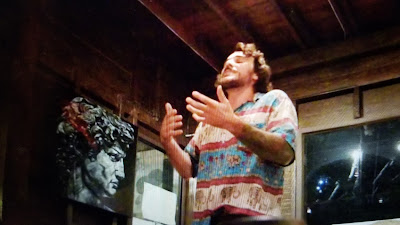As the dust settles from the 2016 United States Presidential Election, the current landscape seems more reminiscent of a desolate battlefield than the culmination of a democratic process. People are hurt. Not only on the side of the “losers,” but all around. The two-year process, fueled by billions of dollars, teeming with negative rhetoric, hate, and distrust, was brutal. And this hurt is not reserved for US citizens alone. This hurt is felt globally. Our media, our actions, permeated much farther than our own borders.
While we lick our wounds and try to ease back into day-to-day life, I believe that there is no time better than the present to make change. For two years we were told that if we don’t like what we see then we must vote. So we voted. The ballots are cast. Someone won and someone lost. Some are happy, some are distraught. Yet, we all feel the wake, in a way that hasn’t been felt before. Yes we should morn, but we should also use this energy and this thirst for change to instill change. Why rest these important desires on the backs of ballots that come only every 2 years, as opposed to continuing to stir the pot? Action goes far beyond voting.
If you are happy with not only the results, but the process, the rhetoric, and the media coverage of the election, then by all means quit reading. If not, what we need now is decisive action. To elect a single person into the role of President of the United States, an estimated 150,000,000 people voted. What would happen if those 150,000,000 people decided to take action on a daily basis, in their own way, sans partisan values, with only the intent of improving their communities? What would happen if people located the issues they felt strongly about and decide to pursue righting those wrongs themselves? My belief is that those actions would be much, much more powerful than casting a single ballot every election cycle.
I’m not telling you to go out and lobby for change, what I’m saying is go out and be change. Activism and protest are good, but imagine if we used that energy spent appealing to legislators to actually get some dirt on our hands, some sweat on our brows, and build whatever the fuck it is we are hoping THEY build for us? If instead of watching CNN and Fox for nearly two years, what if we stopped listening and used that time and energy to right wrongs and help our communities? Things would certainly change.
Here is a simple list of things that if done daily, if only by 75,000,000 who “lost” the election, would make a monumental difference.
Healing: Call it hippie. Call it idealistic. Call it ineffective, but I can tell you the first actions we must take as a society should revolve around healing. Candidates and supporters alike actively attacked one another for years. In the case of President Elect Donald Trump, people of color, LGBTQ, muslims, immigrants, and basically anyone who wasn’t white were constant targets. We need to reverse that process. Actively seek out your friends, family, neighbors, co-workers, and people in your community and let them know you are with them and will stand by them day-in and day-out, regardless of what happened yesterday. Politicians can run their mouths, but your actions will resonate much farther than you can imagine.
Money: To run an election, billions of dollars must be raised (ironically to help billionaires run for office). Your money is a vote. Do your research, know the products you are buying and where they come from. Know if they are hurting others. Know if they are aiding your community’s growth. Buying locally Makes a huge difference! Seek out those who have been marginalized and our running business and support them. One thing BLM has taught us is we must be more supportive of minority businesses. Put your money where your mouth is, and know where your money is going.
Environment: We talk a lot about climate change, but what individual steps are YOU taking to make a difference? Are you carpooling, taking public transportation, walking or riding a bike to work? Are you choosing reusable containers as opposed to plastic? Are you eating locally and staying away from beef and other foods that have massive carbon footprints? If not, today is a good day to change.
How one chooses to incite change is an individual action, because change is incremental and subjective. The trick is actually acting, in your own way, day after day after day. There is no vote until midterms, so why not use that pent up energy, anxiety, hurt, or anger from this election in a proactive and profound way?
If you are uncomfortable, readjust. If you are agitated, move. If you are angry, pinpoint what it is that is making your blood boil, and use that fuel to make concrete action that positively affects your surroundings and those around you.
Now is not the time to be silent. Now is not the time to be still. Now is not the time to roll over. Now is the time to move.
Photo courtesy of the United Way
























